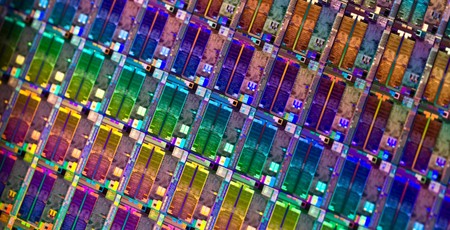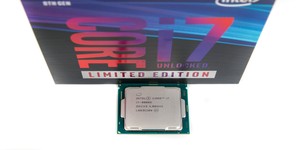
Intel has announced the acquisition of fabless semiconductor company eASIC, which specialises in structured application-specific integrated circuits (structured ASICs), for an undisclosed sum.
The acquisition will see Intel place eASIC, founded in Santa Clara, California, in 1999 and with teams in Romania and Malaysia, into its Programmable Solutions Group (PSG) alongside field-programmable gate array (FPGA) subsidiary Altera. Its products, the company has claimed, will be used as a next-step solution: Engineers can use Intel's Altera FPGAs to develop custom silicon as soft cores, then transition them into faster hardware using eASIC's structured ASICs when they're ready to do so.
'Customers designing for high-performance, power-constrained applications in market segments like wireless, networking and the internet of things (IoT) sometimes begin deployments with FPGAs for fast time-to-market and flexibility,' explains Intel's Dan McNamara, head of the Programmable Solutions Group. 'They then migrate to devices called structured ASICs, which can be used to optimise performance and power-efficiency. A structured ASIC is an intermediary technology between FPGAs and ASICs. It offers performance and power-efficiency closer to a standard-cell ASIC, but with the faster design time and at a fraction of the non-recurring engineering costs associated with ASICs.
'Having a structured ASICs offering will help us better address high-performance and power-constrained applications that we see many of our customers challenged with in market segments like 4G and 5G wireless, networking and IoT. We can also provide a low-cost, automated conversion process from FPGAs (including competing FPGAs) to structured ASICs. Longer term, we see an opportunity to architect a new class of programmable chip that takes advantage of Intel's Embedded Multi-Die Interconnect Bridge (EMIB) technology to combine Intel FPGAs with structured ASICs in a system in package solution. Together with partners and customers, Intel and eASIC expect to deliver industry-leading solutions.'
Intel has not disclosed financial terms of the deal.
In separate, though not-unrelated news, Intel has also announced the launch of a new Xeon processor, the Xeon E-2100, for entry-level workstations, offering six cores and 12 threads (6c12t) running at up to 4.7GHz under Turbo Boost 2.0 conditions, support for up to 64GB of ECC DDR4, built-in Intel UHD Graphics 360, 40 PCIe lanes, and Intel Optane support.

MSI MPG Velox 100R Chassis Review
October 14 2021 | 15:04









Want to comment? Please log in.